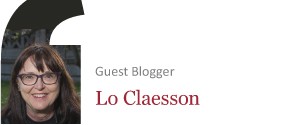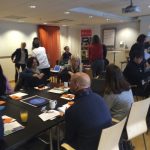The Swedish Library Association has gathered different kinds of library skills in expert networks. These networks are a resource and a knowledge base on matters concerning specific areas and subjects in libraries. They also offer updated and relevant information about different types of libraries.
The members, often active in practical work, in the respective networks have expertise in specific areas and share ideas and skills. Thus the knowledge is kept alive and current in a variety of library areas. Expert networks are also an opportunity for those working in libraries to develop and exchange knowledge. The networks are open to all who are individual members of the Swedish Library Association.
The networks are an appropriate part of the compound as a consultative body and are involved in lobbying to authorities. Experiences and tips are exchanged on various platforms, by email lists and social media. At the network meetings lectures are offered in different areas.
Some examples:
The Network of Experts on School libraries, has among other things highlighted the PISA investigation and how the statistical calculations were made, especially when it comes to reading comprehension. The Swedish Library Association is since many years an advocate for school libraries, concerning establishment, staffing and development. In this work, the network also plays a big role.
The Expert Network for prison libraries, library activities at prisons and detention centers. Among other things, they had lectures and exchange of experiences with Norwegian colleagues, lectures on women in the criminal justice and study visits the prison institutions.
The Expert Network for Children’s Libraries discusses for example children’s reading and the IFLA guidelines for children’s libraries.
The expert networks on Copyright, LGBTQ issues in libraries, e-books and the library’s role in the multilingual areas are some additional examples. The latest expert network was formed in early May and concerns libraries’ work with newly arrived asylum seekers.
There is also an Expert Network for IFLA, where Swedish delegates and visitors to IFLA’s conferences can prepare and share experiences on the conferences and on work that different members of the committees do.
Expert networks are based entirely on members’ commitment and exchange of experiences, skills, tips and discussions. They can also give suggestions on conferences that the Swedish Library Association should organize.
I personally am a member of several of these networks and think it is a great asset and resource.
Lo Claesson, Vaggeryd Public Library, Sweden

